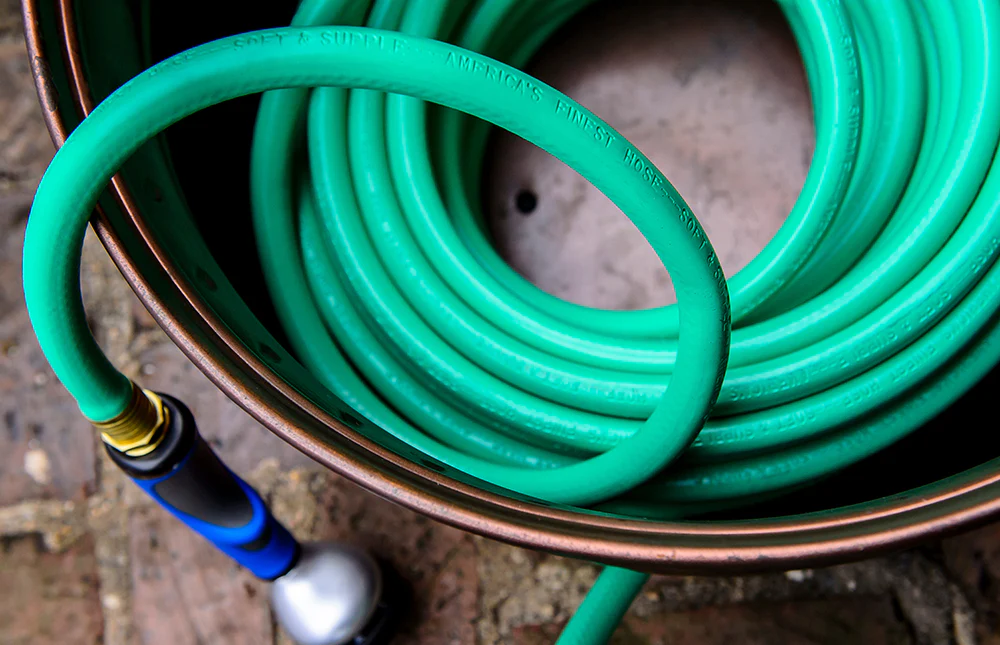
PVC (Polyvinyl Chloride) hoses have become a staple in many industries due to their remarkable durability, flexibility, and resistance to chemicals and environmental factors. Their versatility allows them to be tailored to specific applications, making them essential tools in a wide array of fields. In this article, we explore the various applications of PVC hose factory across different industries, highlighting their significance and impact.
1. Agriculture: A Lifeline for Irrigation
In agriculture, PVC hoses are crucial for irrigation systems. They are used for transporting water from sources to fields, ensuring efficient water distribution. The lightweight nature of PVC hoses makes them easy to handle and install, while their resistance to UV rays and chemicals ensures long-lasting performance in the field.
Farmers often choose PVC hoses for drip irrigation systems, which deliver water directly to the plant roots, promoting efficient water usage and reducing waste. Additionally, PVC hoses can withstand high pressures, making them suitable for various irrigation techniques, including sprinkler systems.
2. Construction: Essential for Fluid Transfer
In the construction industry, PVC hoses are commonly used for fluid transfer. They transport water, concrete, and other construction materials from one location to another. Their flexibility allows them to navigate around obstacles, making them ideal for job sites with varying layouts.
PVC hoses are also used in pressure washing equipment and for dust control on construction sites. Their ability to resist abrasion and withstand high pressures ensures they can handle the demands of tough construction environments.
3. Automotive: Reliable Fluid Handling
The automotive industry relies heavily on PVC hoses for various fluid handling applications. From coolant systems to fuel lines, these hoses provide reliable transportation of liquids necessary for vehicle operation. Their resistance to chemicals and extreme temperatures makes them suitable for use in harsh automotive environments.
Moreover, PVC hoses are used in air conditioning systems, delivering refrigerants efficiently and ensuring optimal performance. The lightweight and flexible design of PVC hoses also contributes to overall vehicle efficiency.
4. Manufacturing: Supporting Production Processes
In manufacturing, PVC hoses are essential for supporting various production processes. They are used in conveying materials such as chemicals, gases, and fluids throughout the production line. The durability and chemical resistance of PVC hoses make them suitable for handling hazardous materials without compromising safety.
Additionally, PVC hoses are employed in pneumatic systems, where they transport compressed air to power machinery and tools. Their flexibility and ability to withstand pressure ensure smooth operation in manufacturing environments.
5. Food and Beverage: Ensuring Safety and Compliance
In the food and beverage industry, the use of PVC hoses is governed by strict safety regulations. Food-grade PVC hoses are specifically designed to meet hygiene standards, ensuring safe transportation of food and beverages. These hoses are resistant to bacteria and other contaminants, making them suitable for use in food processing and packaging.
PVC hoses are commonly used in brewing, bottling, and food processing applications. Their transparency allows for easy monitoring of the flow, and their flexibility facilitates smooth transitions between different stages of production.
6. Healthcare: Delivering Precision and Safety
In healthcare, PVC hoses play a critical role in medical applications. They are used in medical devices, including respiratory equipment, IV lines, and laboratory equipment. The biocompatibility of food-grade PVC hoses makes them safe for use in patient care.
Additionally, PVC hoses are used in suction devices and fluid management systems in hospitals, providing reliable performance while maintaining hygiene standards. Their flexibility allows for easy maneuverability in clinical settings.
7. Marine: Withstanding Harsh Conditions
The marine industry relies on PVC hoses for various applications, including fuel transfer, water intake, and bilge pumping. These hoses are designed to withstand exposure to saltwater, UV radiation, and extreme temperatures, making them ideal for marine environments.
PVC hoses are often used for connecting pumps to tanks and for transferring fuel to vessels. Their durability and flexibility ensure reliable performance in challenging conditions, supporting safe and efficient operations on the water.
Conclusion
PVC hoses are versatile tools that play a crucial role in a multitude of industries. From agriculture to healthcare and manufacturing to marine applications, their durability, flexibility, and resistance to chemicals and environmental factors make them indispensable.
As industries continue to evolve, the demand for high-quality PVC hoses will only grow, leading to innovations that enhance performance and sustainability. Understanding the various applications of PVC hose factory not only highlights their significance but also underscores the importance of continued advancements in manufacturing processes to meet the diverse needs of modern industries.